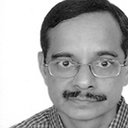Dengue haemorrhagic fever in children in Delhi.
Palavras-chave
Resumo
An epidemic of dengue haemorrhagic fever occurred in Delhi during 1988. A total of 21 paediatric patients with dengue haemorrhagic fever/dengue shock syndrome were evaluated from September to November 1988. All the patients had fever, restlessness, ecchymotic spots and ascites. Pleural effusion occurred in 19 patients (90%), and 18 (86%) exhibited each of the following: vomiting, thrombocytopenia, and haemoconcentration. Hepatomegaly was observed in 15 patients (71%) and splenomegaly in three (14%). Titres of haemagglutination inhibition (HI) antibodies against dengue virus type 2 were raised in all the 15 cases from whom sera were collected during the acute stage. Convalescent sera from five patients had increased titres of HI antibodies to dengue virus type 2. The remaining 10 cases exhibited raised IgM antibody levels against dengue virus type 2. The fatality rate for serologically proven cases was 13% (2 of 15 patients), while for all patients (including those diagnosed clinically (6) and serologically (15)) it was 33.3% (7 of 21). Patients who survived had no sequelae, except one who had transient hypertension that lasted for two weeks.


